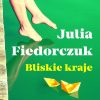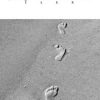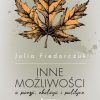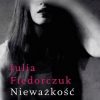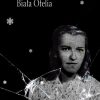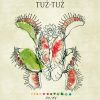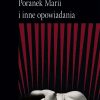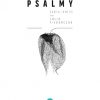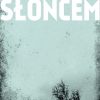Julia Fiedorczuk is a writer, poet, translator and a professor at Warsaw University where she teaches at the Institute of English Studies and the Environmental Humanities Center, of which she is also a co-founder. She has published collections of short stories, Poranek Marii („Maria’s morning”, Marginesy 2010) and Bliskie kraje („Close countries”, Marginesy 2016) as well as novels: Biała Ofelia („White Ophelia”, Biuro Literackie, 2013), Nieważkość („Weightless”, Marginesy 2015, nominated for the Nike Award), Pod Słońcem („Under the Sun”, 2020, nominated for the Warsaw Literary Prize and the Kazanecki Literary Prize) and Dom Oriona („The House of Orion”, Wydawnictwo Literackie, 2023). Together with Laurie Anderson she published a selection of Anderson’s texts in Polish translation (Język przyszłości, with Laurie Anderson’s illustrations, Biuro Literackie, 2012). She is the author of six poetry volumes, the latest of which, Psalmy (“Psalms”), was awarded the Wisława Szymborska Prize, Poland’s most prestigious prize for Poetry. She has also published essays, including the collection Cyborg w ogrodzie. Wprowadzenie do ekokrytyki („Cyborg in the garden. Introduction to ecocriticism”) and „Ecopoetics” (in collaboration with the Mexican poet Gerardo Beltrán). In 2019 she published a collection of interviews with American poets: Inne możliwości (WN Katedra). She has been nominated for the Julian Tuwim prize for lifetime achievement (twice), participated in numerous international poetry festivals in Poland and Abroad (Hong Kong, Mexico, USA, Great Britain, Holland, Slovenia, Romania, Lithuania) and presented guest lectures in Europe, Mexico and USA (including the Weintraub Lecture in Polish Literature and Culture at Harvard University). Her texts and translations have appeared in Literatura na Świecie, Dwutygodnik, Tygodnik Powszechny and many other journals. Fiedorczuk is a columnist for Przekrój as well as the most popular Polish weekly, Polityka. Her work has been translated into over 20 languages.
Literature in English
„Psalm V”, translated by Bill Johnston
„Psalms”, translated by Bill Johnston
„Strangers in the Country of the Poet”
„Oxygen”, translated by Bill Johnston
Five poems in audio, translated by Bill Johnston
„Medulla”, translated by Anna Zaranko
From „Weightless”, translated by Anna Zaranko
Reviews
While language has often been advanced as the fundamental means of differentiating between human animals and non-human animals, in “Oxygen” language unifies rather than separates. The sea “is a stubborn subtext,” the body made “of tongue / and daylight.” In one poem, Fiedorczuk exposes and enacts the creation of person, world, word: “in this version I’m coming to you through a wood / across a fresh green valley” and then, a few lines later, “in this version I’m coming to you across a trash heap.” Language is the material that constructs the world’s every part.
Elisa González, Asymptote
“Nieważkość” therefore requires careful reading and effort in order to reveal its insight. But that effort will deliver great rewards.
Anna Blasiak, European Literature Network



